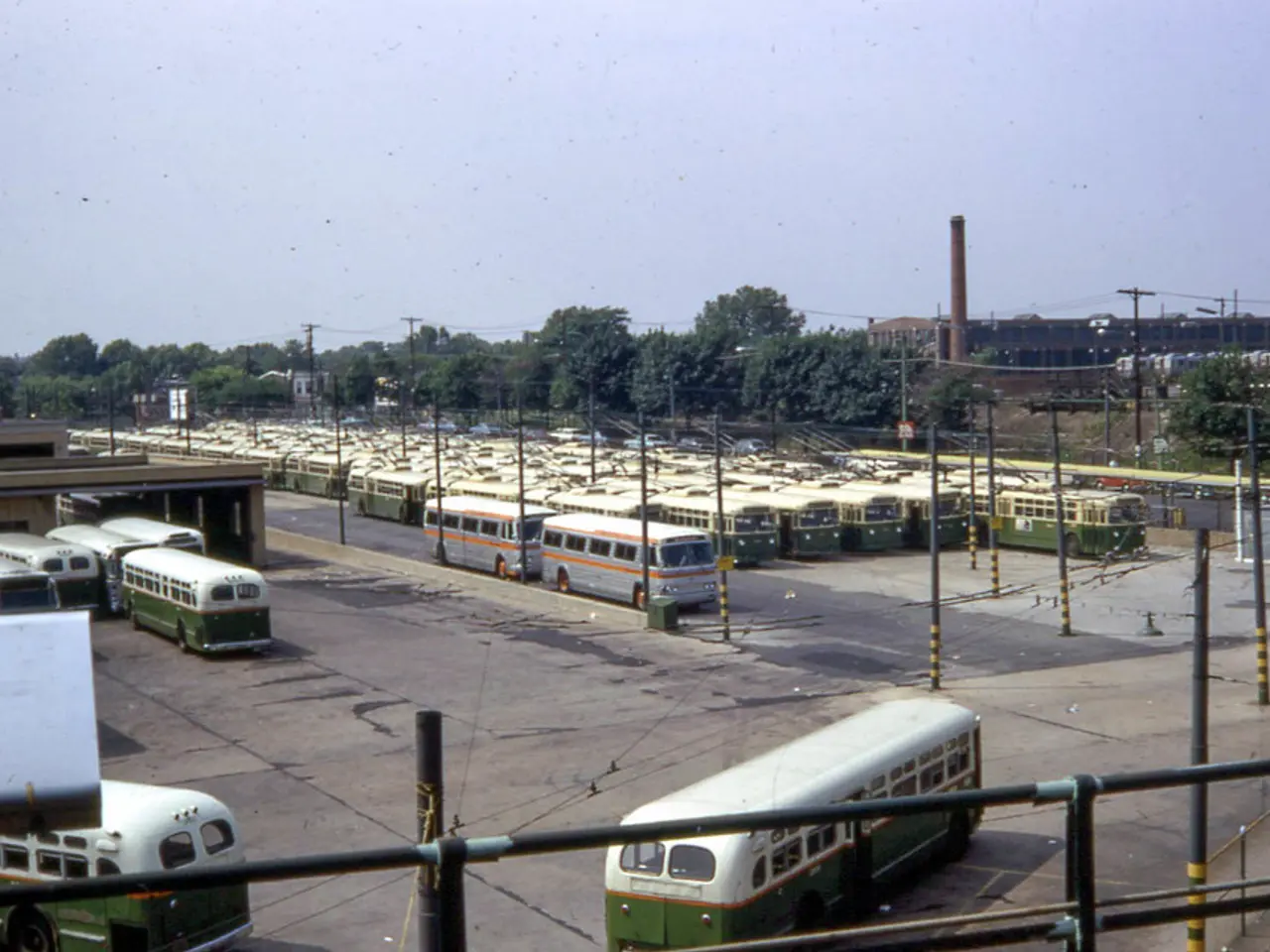Urban development in Dresden serves as a model for future transportation cities
In an effort to accelerate the transition to climate-neutral traffic, the European Commission has funded a significant project called "Mobilities for EU". This initiative, a key component of the EU mission "100 climate-neutral and smart cities by 2030", aims to revolutionise urban mobility and reduce Europe's energy consumption and greenhouse gas emissions.
A central part of this mission is the Climate-City-Contract, a municipal framework plan designed to guide municipalities on their journey towards climate neutrality. The contract outlines a potential path to achieving this ambitious goal, providing a roadmap for cities across Europe.
The Climate-City-Contract is being developed within the framework of the EU mission "100 climate-neutral and smart cities by 2030". Two EU projects, "Mobilities for EU" and "NEUTRALPATH", serve as key building blocks in this process. These projects focus on concepts for passenger and freight transport that are energy-efficient and user-oriented.
The "Mobilities for EU" project, with Dresden as one of its pilot cities, is demonstrating the effectiveness of 27 mobility solutions in eleven pilot actions. These solutions include the introduction of autonomous electric buses and a decentralized data ecosystem for automated driving in urban areas. Dresden is working with partners such as Volkswagen Group Innovation, SAP SE, Fraunhofer IVI, TU Dresden, and the Saxon Energy Agency SAENA to make these solutions a reality.
Meanwhile, the "NEUTRALPATH" EU project is also involved in the creation of the Climate-City-Contract. Its role in specifying the path to climate neutrality is significant, particularly in the adaptation and further development of processes in five cities in Greece, Slovakia, Finland, Poland, and Bosnia-Herzegovina. These cities will tailor the processes according to their individual needs, ensuring the contract's applicability across Europe.
By 2030, 112 cities, including Dresden and Madrid, aim to achieve climate neutrality, as part of the European Commission's "Climate-Neutral and Smart Cities" mission. The creation of the Climate-City-Contract is a crucial step in this direction, providing a guide for municipalities to follow in their pursuit of a sustainable and climate-neutral future.
In conclusion, the "Mobilities for EU" and "NEUTRALPATH" EU projects are instrumental in creating the Climate-City-Contract within the EU mission "100 climate-neutral and smart cities by 2030". These projects are paving the way for a greener, more sustainable Europe, one city at a time.
Read also:
- Nightly sweat episodes linked to GERD: Crucial insights explained
- Antitussives: List of Examples, Functions, Adverse Reactions, and Additional Details
- Asthma Diagnosis: Exploring FeNO Tests and Related Treatments
- Unfortunate Financial Disarray for a Family from California After an Expensive Emergency Room Visit with Their Burned Infant








